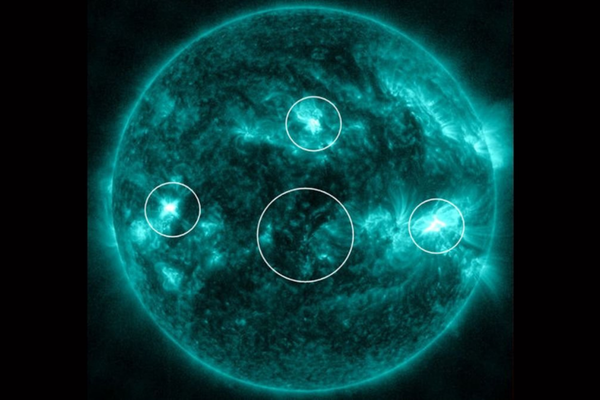NASA captured four sympathetic solar flares that erupted simultaneously.
About Sympathetic Solar Flares:
- Sympathetic solar flares are triggered by multiple eruptions across the Sun’s magnetic field.
- These eruptions are connected through massive magnetic field loops that hover above the solar surface.
- The phenomenon occurs when one flare sets off others, leading to coronal mass ejections (CMEs) and significant plasma releases.
- This activity often signals the Sun nearing the peak of its 11-year cycle, referred to as the solar maximum, characterized by heightened solar events.
- 2023 has seen three sympathetic flare events, including a duo of X-class flares in March and smaller ones earlier in the year.
- The emission of four flares simultaneously has been described as a “super-sympathetic” event, a rare occurrence given most past events involved only two linked flares.
Impact on Earth
- When directed towards Earth, sympathetic flares have the potential to disrupt power grids, and telecommunication networks, and damage orbiting satellites.
- They can also pose severe radiation risks to astronauts.
- Even relatively minor events, like the anticipated G1 class geomagnetic storms, could extend the auroras to lower latitudes, offering unusual visual displays.
- These flares and resultant geomagnetic storms highlight the ongoing need to understand the Sun’s complex life cycle and prepare for its varying impacts on Earth.
Ref:Source
| UPSC IAS Preparation Resources | |
| Current Affairs Analysis | Topperspedia |
| GS Shots | Simply Explained |
| Daily Flash Cards | Daily Quiz |



